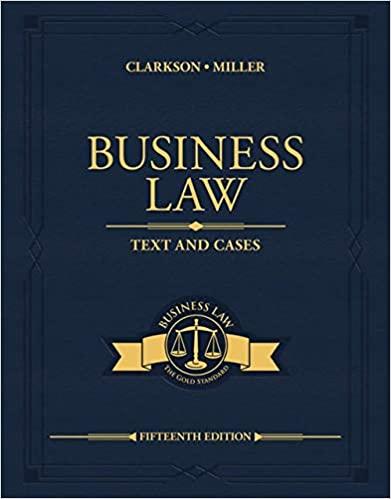Sandra White operated a travel agency. To obtain lower airline fares for her nonmilitary clients, she booked
Question:
Sandra White operated a travel agency. To obtain lower airline fares for her nonmilitary clients, she booked military-rate travel by forwarding fake military identification cards to the airlines.
The government charged White with identity theft, which requires the “use” of another’s identification. The trial court had two cases that represented precedents. In the first case, David Miller obtained a loan to buy land by representing that certain investors had approved the loan when, in fact, they had not. Miller’s conviction for identity theft was overturned because he had merely said that the investors had done something when they had not. According to the court, this was not the “use” of another’s identification. In the second case, Kathy Medlock, an ambulance service operator, had transported patients when there was no medical necessity to do so. To obtain payment, Medlock had forged a physician’s signature. The court concluded that this was “use” of another person’s identity. [United States v. White, 846 F.3d 170 (6th Cir. 2017)] (See Sources of American Law.)
(a) Which precedent—the Miller case or the Medlock case— is similar to White’s situation, and why?
(b) In the two cases cited by the court, were there any ethical differences in the actions of the parties? Explain your answer.
Step by Step Answer:

Business Law Text And Cases
ISBN: 9780357129630
15th Edition
Authors: Kenneth W. Clarkson, Roger LeRoy Miller





